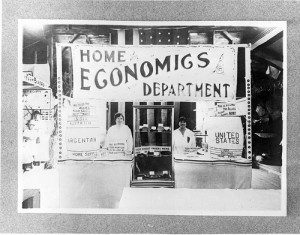 There isn’t a better time to start learning about fiscal economic policy. If you haven’t heard, Congress is attempting to stimulate the economy in many ways. Through policies like cash for clunkers or the tax credit for first time homebuyers, Congress is using tools at their disposal.
There isn’t a better time to start learning about fiscal economic policy. If you haven’t heard, Congress is attempting to stimulate the economy in many ways. Through policies like cash for clunkers or the tax credit for first time homebuyers, Congress is using tools at their disposal.
The purpose of this page is to explain how Congress is attempting to stimulate the economy and its short and long-term effects.
Define Fiscal Policy
Fiscal policy can be defined as the policies implemented by Congress (Senate and House) to control money supply and the cost to buy money (interest rates). To control the money supply and interest rates, Congress adjusts spending and taxation.
The goals of Congress is to:
- Maintain long term economic growth
- Maintain price levels (inflation)
- Maintain full employment
Monetary Vs. Fiscal Policy
Monetary policy is the policies implemented by the Federal Reserve, not Congress. The Federal Reserve and Congress don’t share the same abilities. For example, The Fed cannot raise taxes or increase Government spending. Congress however does have the ability to change taxes or increase spending. On the other hand, the Federal Reserve has the ability to change the discount rate or buy and sell Government securities, which Congress doesn’t have.
Combined, monetary and fiscal policies play a major role in moving our economy.
Tools of Fiscal Policy
Congress uses expansionary or contractionary fiscal economic policy, just like the Federal Reserve. Each policy implemented, is meant to maintain long-term economic growth and inflation, while maintaining full employment.
Congress has three tools at their disposal.
- Taxation - Congress has the ability to increase and decrease tax rates, both individual and corporate. Increasing tax rates will reduce money available for spending. The reduction in money available will increase the cost to borrow money, or interest rates. By increasing tax rates, Congress is tightening or contracting the economy. If Congress wanted to stimulate or expand the economy, they would reduce tax rates. The reduction of tax rates will increase money available, which will decrease interest rates.
- Spending – Increased spending is one policy implemented by Congress in 2009. The goal of the increased spending is to increase the money supply, which will stimulate the economy. If Congress wanted to contract the economy, they would reduce their spending. The reduction in spending would mean less money available, which would increase the cost to borrow money.
- Debt Management - Just like anyone else, Congress has the ability to go into debt (they seem to be taking full advantage of this right now). This happens when Congress spends more money than what is currently collected with taxes. Debt stimulates the economy in the short run by increasing money supply but has negative impacts in the long run. As interest payments from debt accumulate, the money supply will decrease. A decreased money supply will contract the economy.
Closing
In 2009, Congress is taking full advantage of the tools available to them. It’s clear that Congress is implementing expansionary fiscal policy, rather than contractionary fiscal policy.
Do you think the acts by Congress to stimulate the economy in the short run will be beneficial in the long run? What are the long-term effects of our current fiscal economic policy? Can Congress spend their way out of a recession?
I’m interested to hear your thoughts.
Comments on this entry are closed.